Eggs are an incredibly popular food in Vietnam, featuring regularly in family meals. It’s common to consume at least three eggs per week. However, it can be frustrating when the eggs you buy from the market turn out to be stale or even rotten, raising concerns about your family’s health.
Stale eggs, when consumed, can cause various health issues. Over time, they develop mold and are susceptible to harmful bacterial growth, which can lead to skin rashes and an uncomfortable itchy feeling. Additionally, eating stale eggs can result in diarrhea, stomach cramps, headaches, fever, vomiting, and dehydration.
For these reasons, it’s essential for homemakers to be mindful when selecting fresh eggs for their families.
1. Nutritional Value and Benefits of Chicken Eggs
Nutritional Value of Chicken Eggs
Chicken eggs are highly nutritious and contain a range of vitamins, including A, D, E, B1, B6, and B12, as well as essential minerals like iron, calcium, and zinc.
They are an excellent source of protein and contain certain types of acids that are beneficial for the immune system. For women, egg whites are a beauty secret, helping to combat skin aging. The protein in eggs also plays a crucial role in tissue repair and tightening the skin.
Vitamin D in chicken eggs aids in calcium absorption, contributing to stronger bones. Therefore, individuals at risk of osteoporosis should include eggs in their daily diet.
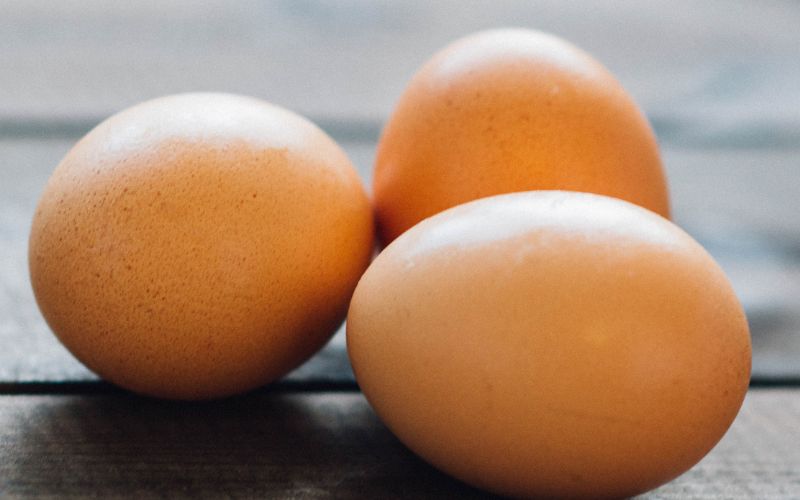 Nutritional Value of Chicken Eggs
Nutritional Value of Chicken Eggs
Benefits of Chicken Eggs for Health
Given their rich nutritional profile, chicken eggs offer a plethora of health benefits. Specifically, they:
- Prevent skin aging
- Improve skin elasticity
- Help prevent acne
- Tighten and minimize enlarged pores
- Promote skin regeneration and brightening
- Moisturize dry skin
- Nourish hair, reducing frizz
- Prevent hair loss and stimulate hair growth
- Help prevent and treat atherosclerosis
- Reduce the risk of dementia in elderly individuals
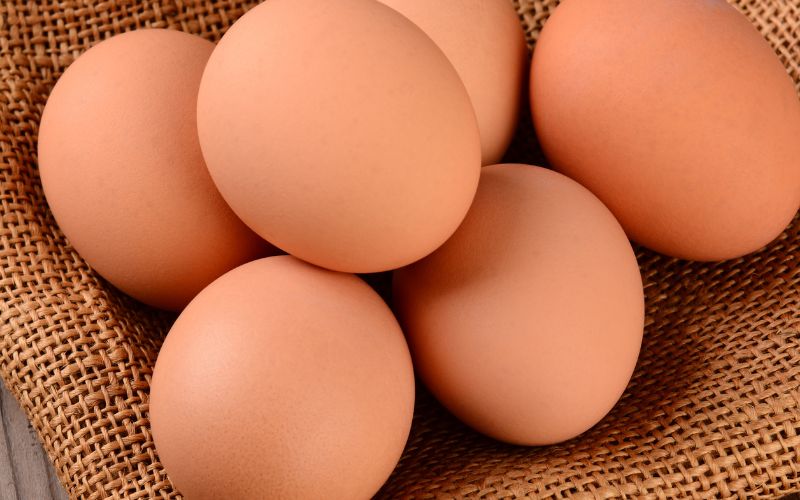 Benefits of Chicken Eggs for Health
Benefits of Chicken Eggs for Health
2. How to Select Fresh and Delicious Chicken Eggs
Inspecting the Eggshell
When choosing chicken eggs, the first thing to consider is the appearance of the eggshell. Avoid eggs with dark spots or a pale color, as these are usually older. Opt for eggs with a darker, smoother shell, free from cracks or blemishes.
However, this method of judging egg freshness by color only applies to industrial chicken eggs. For free-range chicken eggs, which are typically white or light yellow, this method is not applicable.
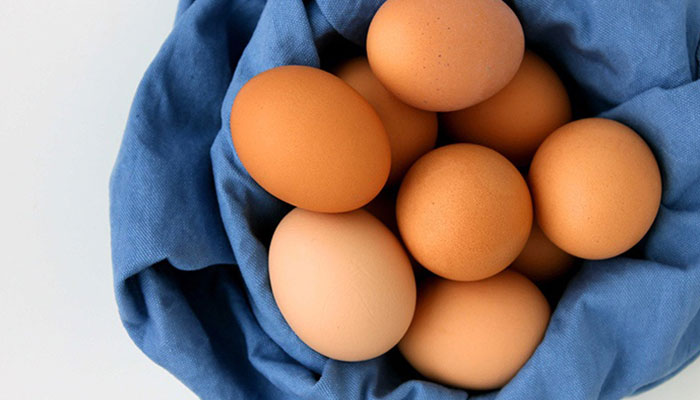
Touching the Egg
According to experts, another quick and accurate way to determine egg freshness is by touch. Fresh eggs will feel slightly rough or bumpy on the shell, while older eggs will have a smoother texture. This is because freshly laid eggs have tiny pores that are invisible to the naked eye, and these pores gradually close as the egg ages.
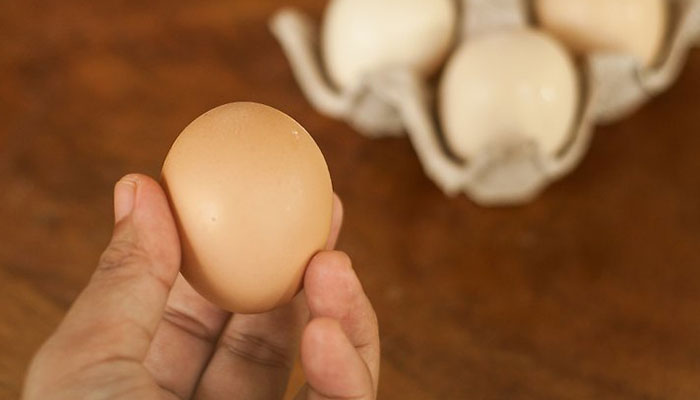
Examining the Egg Under Light
Hold the egg up to a light bulb or shine a flashlight through it. A fresh egg will have a small air pocket, a round yolk that doesn’t move, clear whites, and a pale orange or pink color. Older eggs will have a larger air pocket, and the yolk may appear runny and veined.
So, when shopping for eggs at a market or supermarket, utilize natural sunlight or a light source to help you select the freshest eggs.
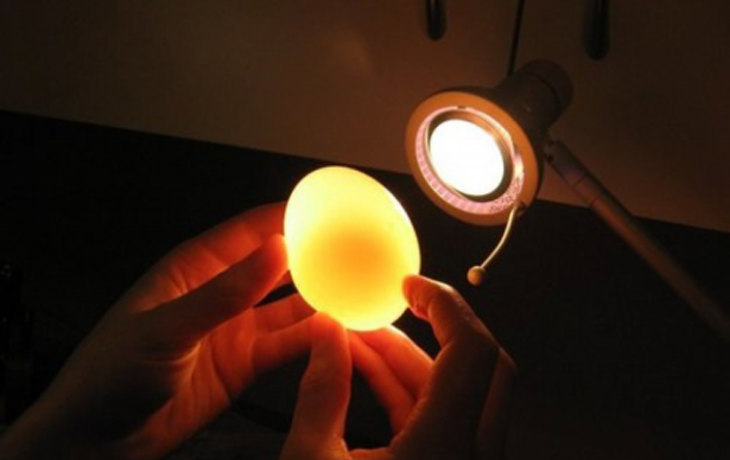
Gently Shaking the Egg
Hold the egg close to your ear and give it a gentle shake. If you hear a sloshing sound, the egg is old. If the egg moves vigorously and makes a loud noise, it’s rotten. If you can feel the egg moving vigorously without even listening, it’s also spoiled or in the process of hatching.
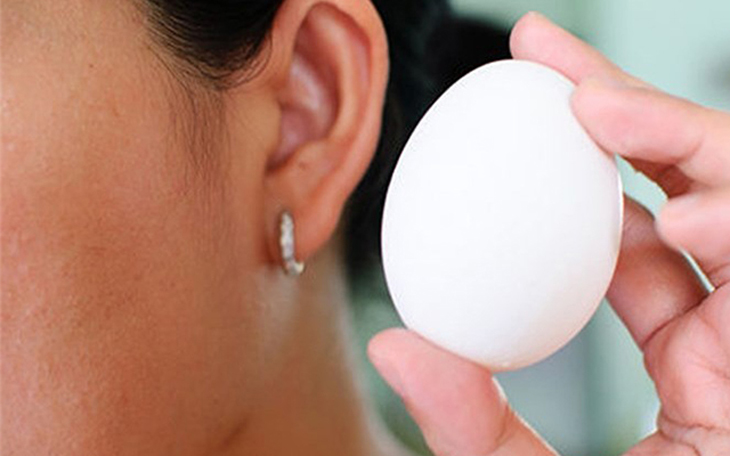
3. Important Notes on Consuming and Storing Chicken Eggs
While chicken eggs are highly nutritious and versatile, it’s important not to overconsume them. Experts recommend limiting your intake to one to two eggs per day, depending on your health and dietary needs. If an egg shows signs of spoilage or has an unusual odor, refrain from consuming it to avoid potential health risks.
For storage, it’s best to keep eggs in the chiller compartment of your refrigerator, where they can last for three to five weeks. When arranging eggs in the tray, place them with the narrower end facing downward.
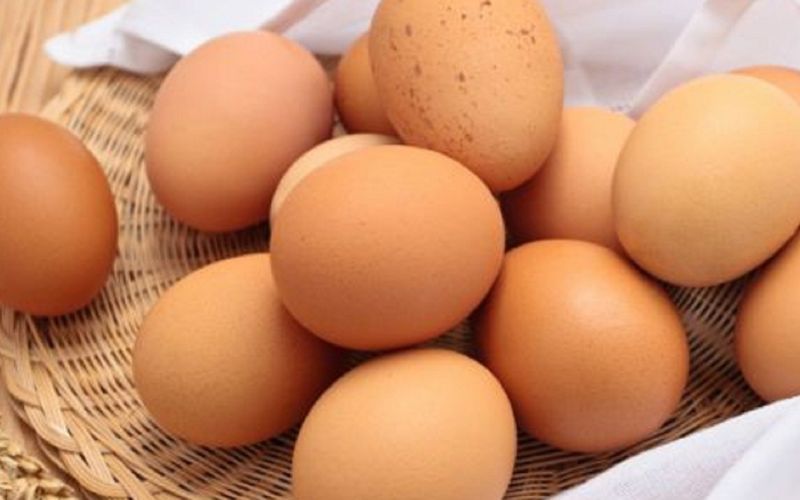 Important Notes on Consuming and Storing Chicken Eggs
Important Notes on Consuming and Storing Chicken Eggs
4. Delicious Dishes Made with Chicken Eggs
Soy-Marinated Eggs
Soy-marinated eggs are a delicious and easy-to-make treat. The rich flavor of the eggs blends beautifully with the savory soy sauce. The leftover sauce can also be used for stir-frying vegetables, meat, or noodles.
For the full recipe, visit:
 Soy-Marinated Eggs
Soy-Marinated Eggs
Thai-Style Egg with Runny Yolk
This dish features a creamy, soft-boiled egg with a runny yolk, paired with a spicy Thai-style sauce. It’s a delightful combination that goes well with rice, noodles, or bread.
For a detailed guide, check out: How to Make Thai-Style Egg with Runny Yolk, a Delicious Companion to Any Meal
 Thai-Style Egg with Runny Yolk
Thai-Style Egg with Runny Yolk
Tomato and Egg Soup
This soup is not only tasty and nutritious but also visually appealing. The fluffy egg whites float gracefully in the soup alongside the tomatoes, earning it the nickname “cloud soup.”
For the full recipe, head over to:
 Tomato and Egg Soup
Tomato and Egg Soup
5. [Store Name]: Your Trusted Source for High-Quality Eggs at Great Prices
At [Store Name], we take pride in offering only the freshest and finest chicken eggs to our valued customers. You can count on us for a consistent supply of top-quality eggs and other daily essentials.
In addition, we regularly run promotions and discounts to make your shopping experience even more enjoyable. Our knowledgeable staff is always ready to assist and provide helpful advice.
 [Store Name]: Your Trusted Source for High-Quality Eggs at Great Prices
[Store Name]: Your Trusted Source for High-Quality Eggs at Great Prices
Be sure to check out our latest promotions and offers on fresh eggs at [Store Name]
Chicken eggs are not just a delicious daily staple but also a highly nutritious food. Learning how to select fresh eggs is essential for maintaining the health and well-being of your loved ones.







































